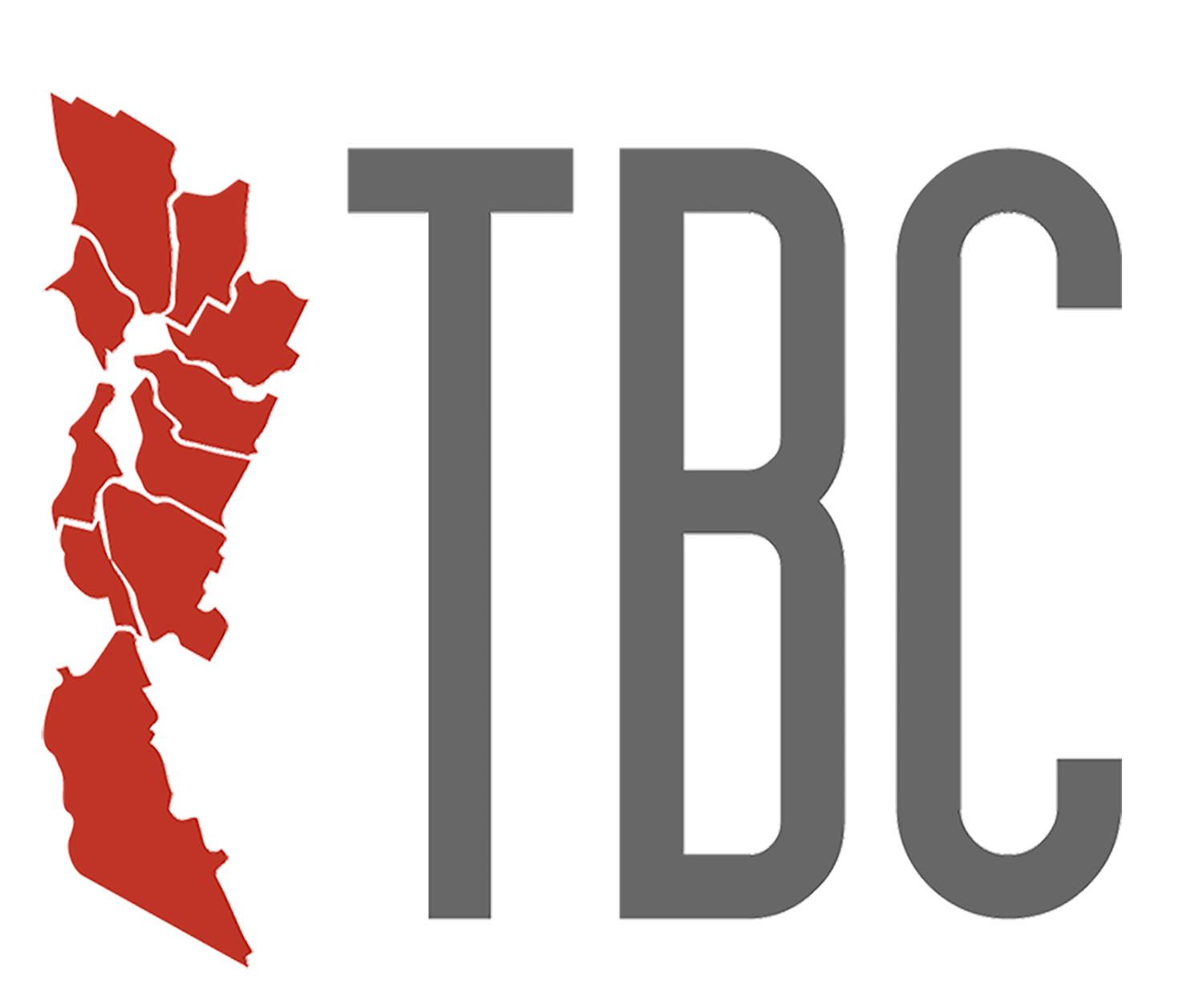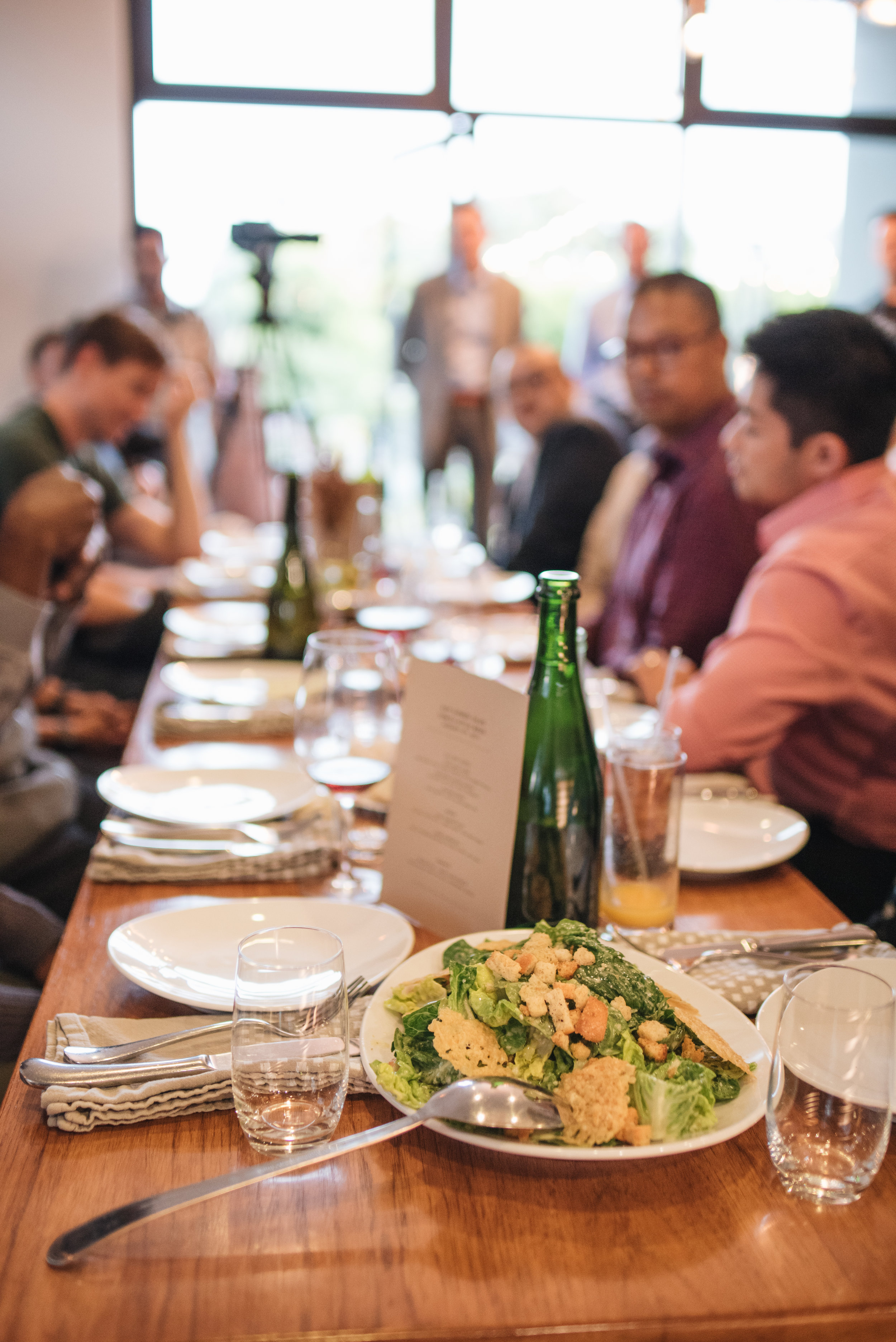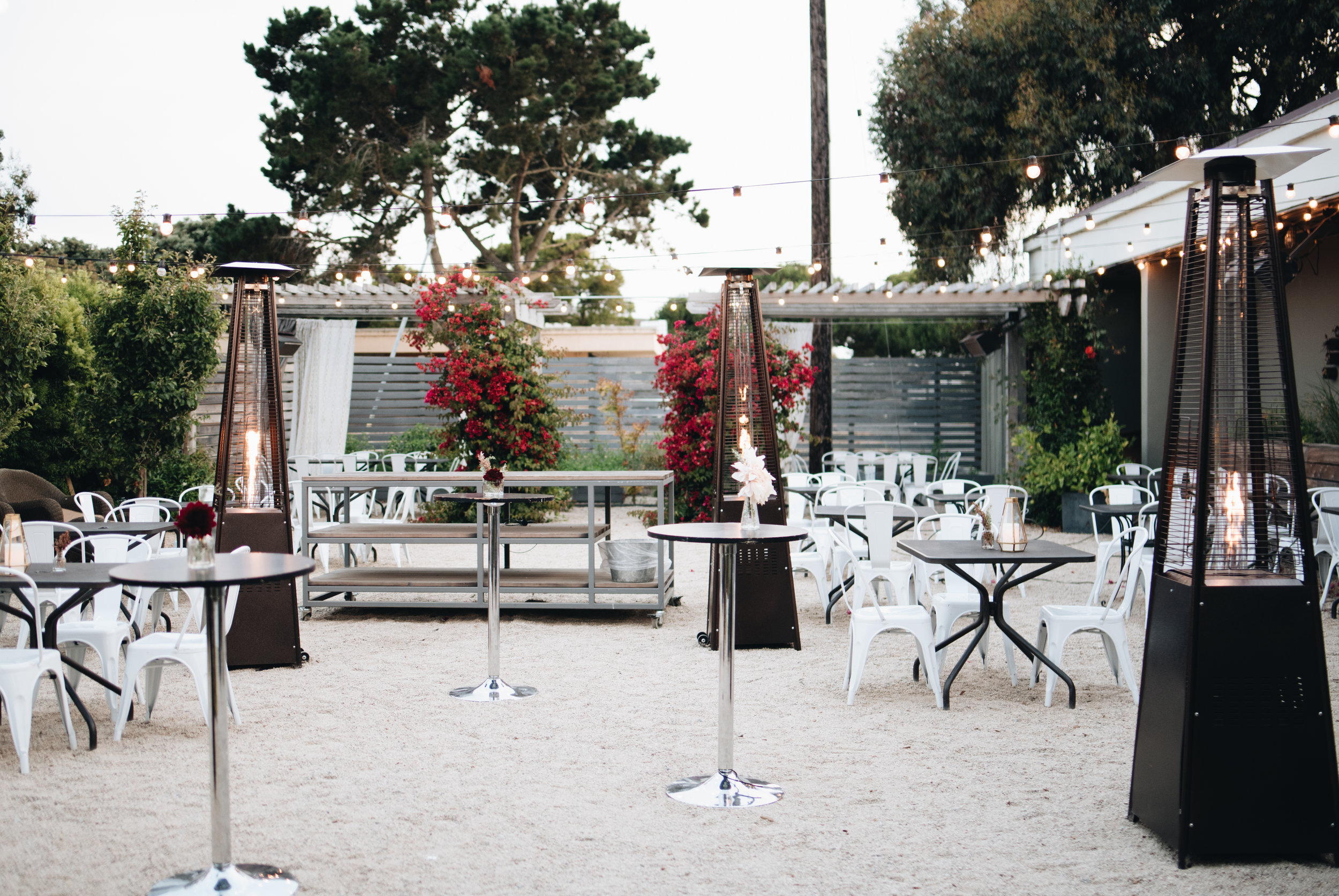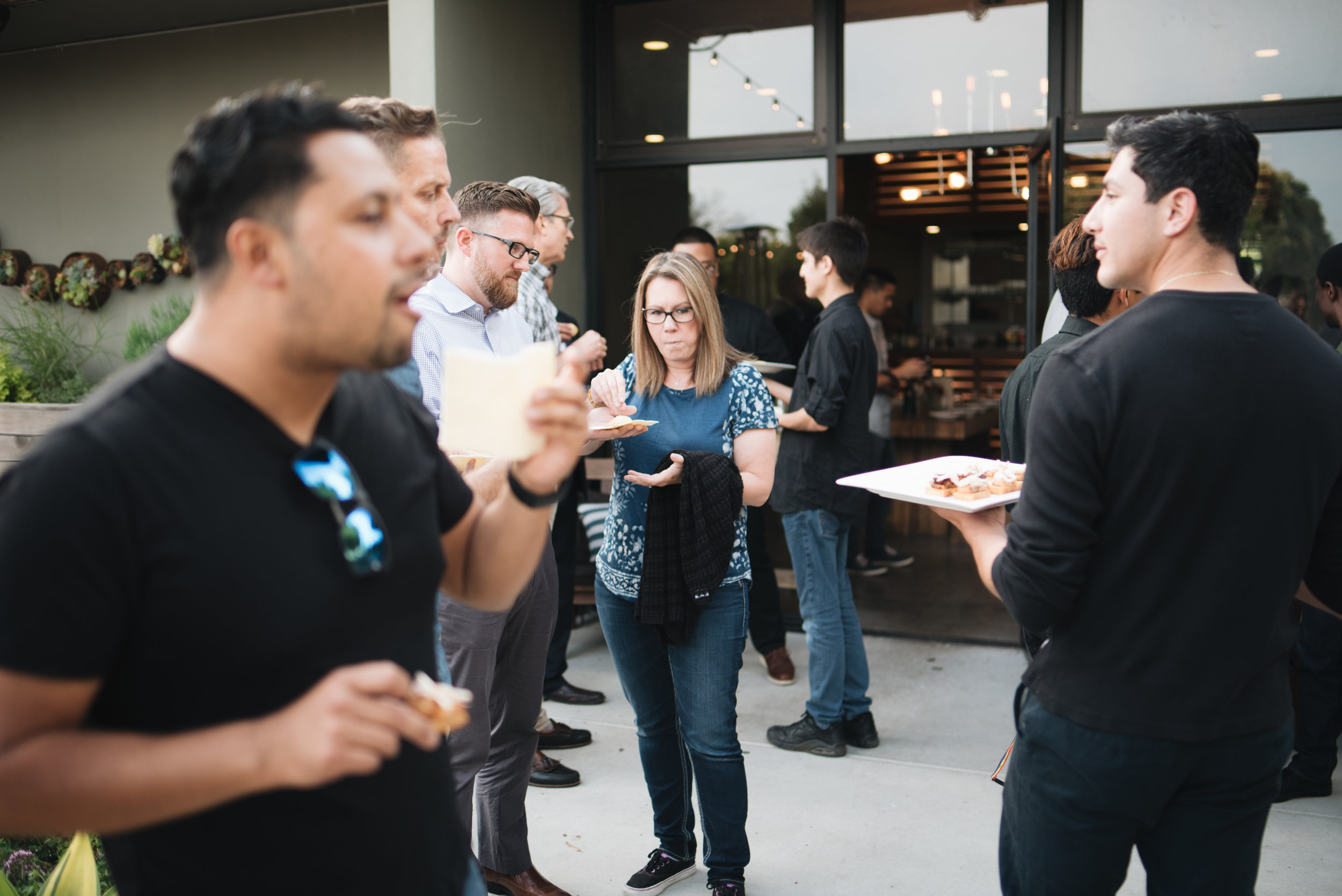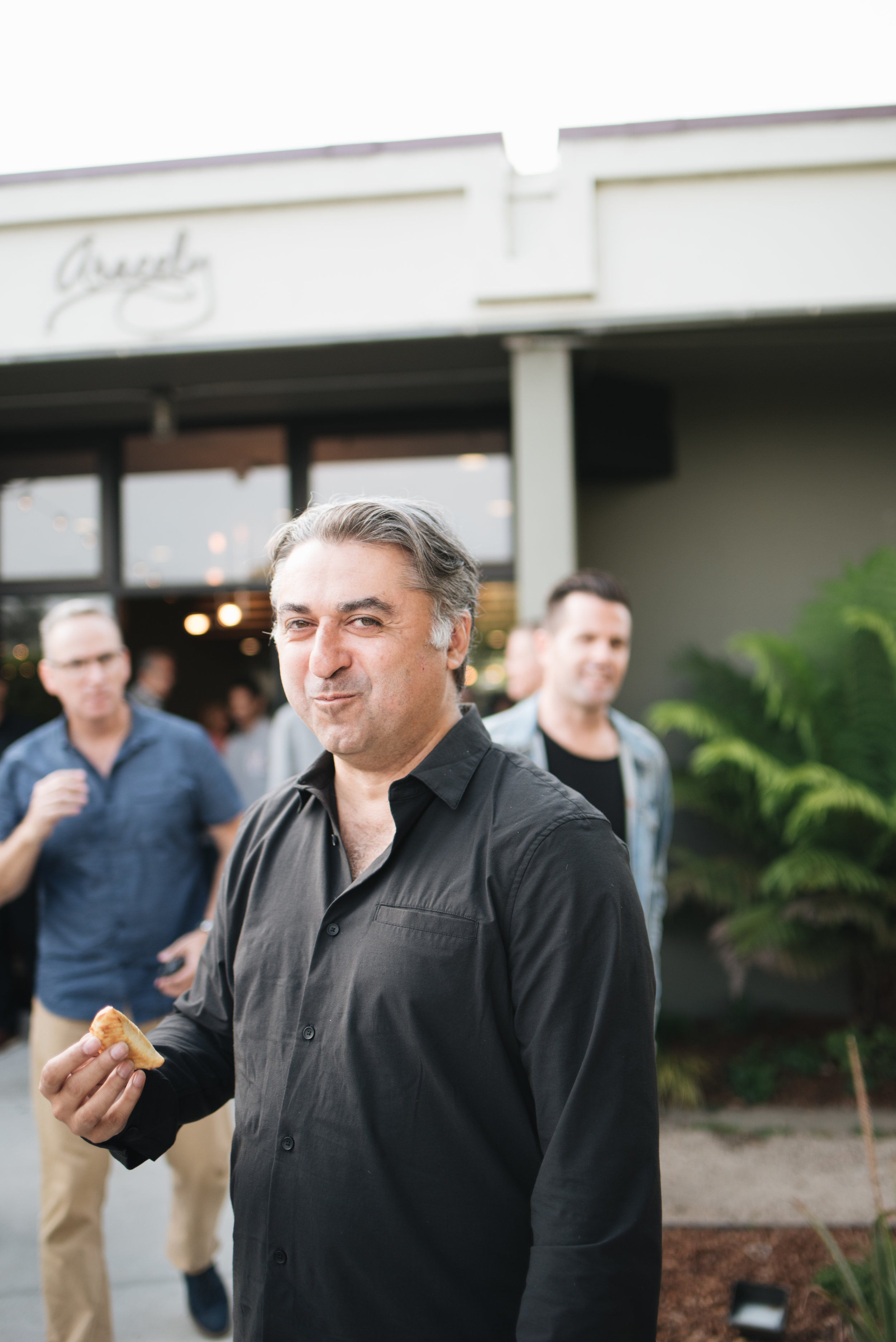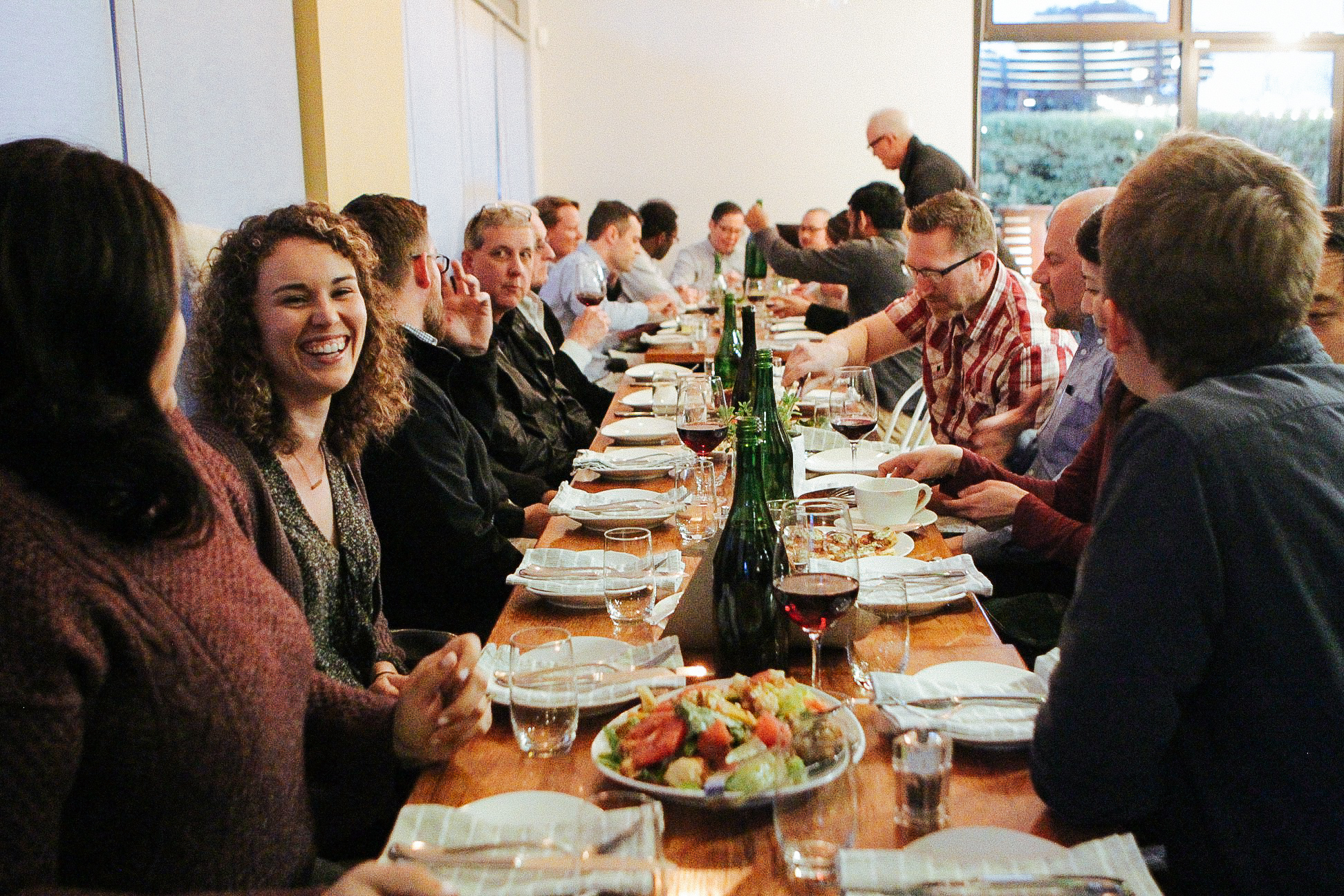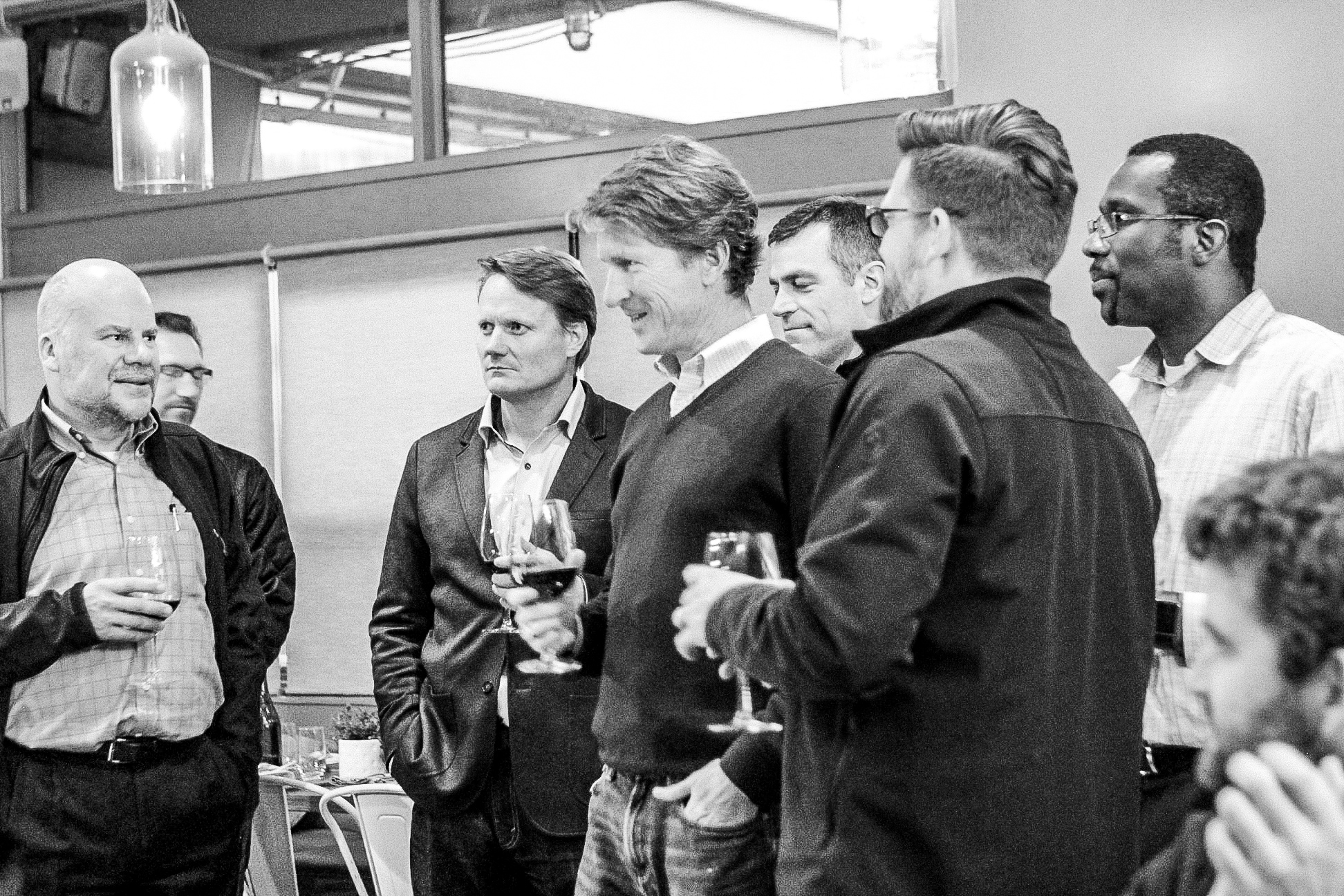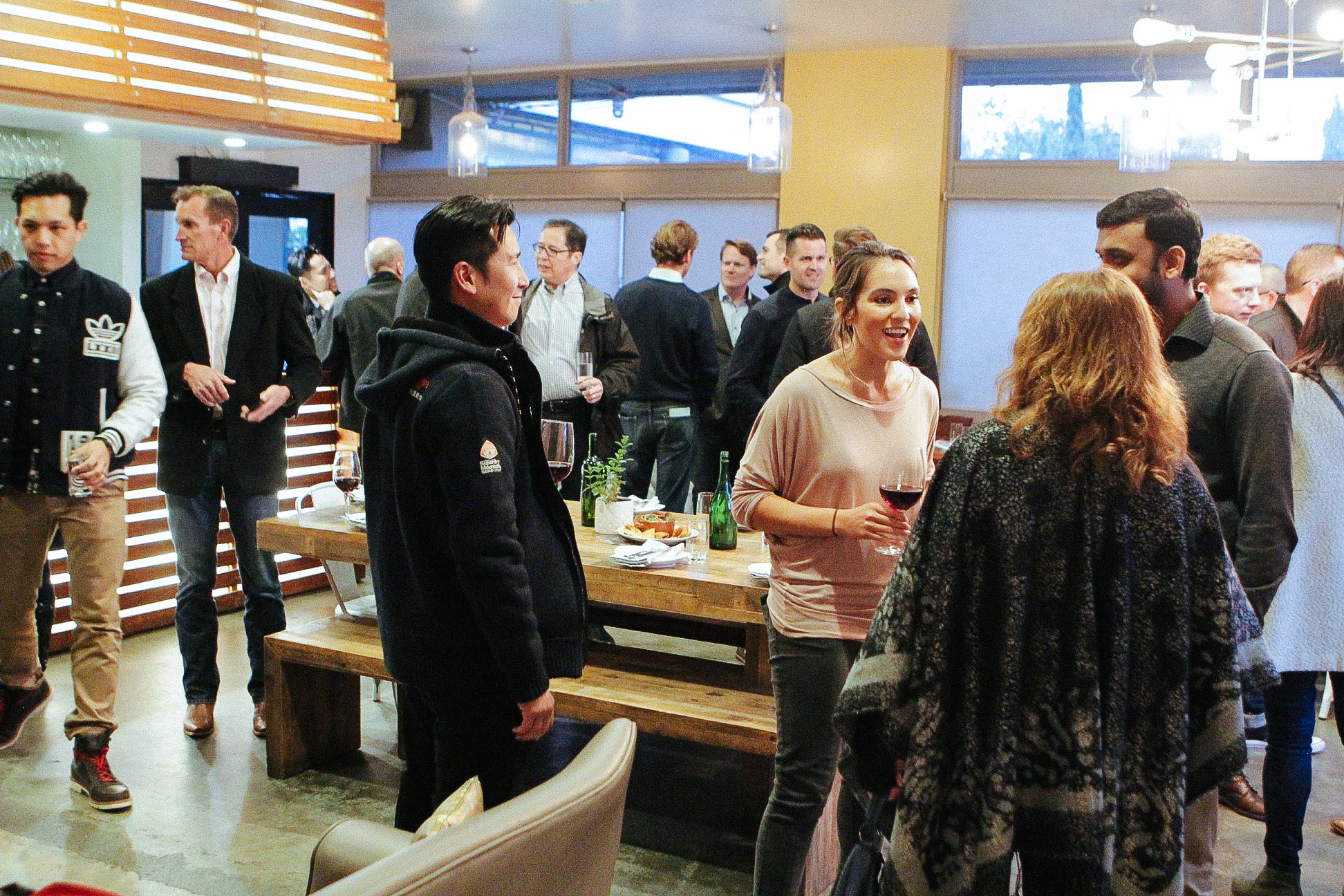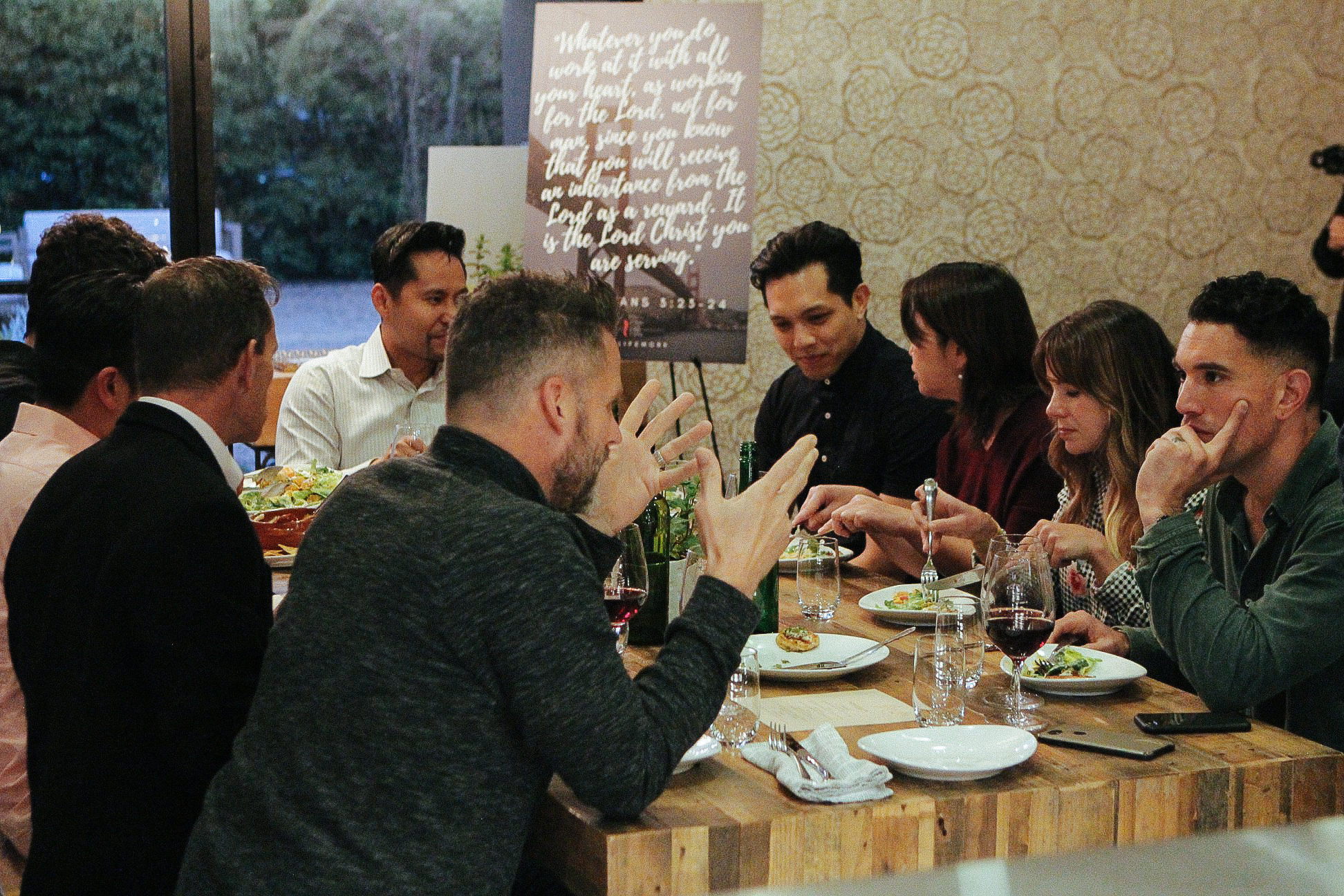Foster Care and the Church
May is National Foster Care Awareness Month – the time of year when the spotlight shines on the plight of neglected and abused children. There are more than 6,000 foster children in the 11 counties of the San Francisco Bay area.
A child enters foster care when a report of abuse or neglect within their own home is substantiated by Child Protective Services. Thirty-four percent of these children go to live with relatives, but 20% of California’s foster children are forced to move out of the county where they have been residing because there are not enough homes available nearby. This leads to further disruptions for them as they change schools and adapt to unfamiliar neighborhoods sometimes hundreds of miles away. (It is not unheard of for a child from the Bay Area to move to a foster home in Southern California.) On top of that, many foster children experience multiple changes in their living situations. While the average stay in foster care is eighteen months, for those children who are in care for two or more years, 44% move three times and 15% move five times.
Increasing the number of available foster homes locally is one way to address the need but recruiting foster parents can be challenging. “With more children entering into care than families to provide it, we’re in a crisis,” says Ellie Egles, Director of Care and Support at Foster the Bay.
Foster the Bay is a coalition of 150 churches throughout the Bay area committed to not only finding homes for foster children, but supporting those families providing care. “Our model draws from the very essence of what the church should be – a community providing tangible, spiritual, and emotional support,” Ellie explains.
Churches in the Foster the Bay coalition raise up at least one foster family and a group of support friends to come alongside the family. “It’s actually really difficult to be a foster parent,” says Ellie who along with her husband has provided care in their home for three children. “This is physically, emotionally, and spiritually demanding. 60% of foster families drop out after the first year or the first placement. So rather than tell a foster family, you have to do this on your own, we ask three or four support friends to walk through this journey together with them.”
A church for every child
Since it was established 5 ½ years ago, Foster the Bay has worked with church leaders to recruit foster families, advocates, and support friends. They also provide resources, trainings, and tools to inform and encourage participation. Ellie confirms, “It’s not just a foster family saying yes and welcoming a child; it’s the whole church saying yes.”
Foster the Bay connects churches to a number of other organizations that provide training, conferences, and camps like Help One Child which gives the church the opportunity to wrap around foster families as an educated village. The goal is to support placement stability and health.
“Help One Child is very committed to education,” says Executive Director, Valerie Crane. “But if you’re never exposed to what foster care is, it remains this mystical thing. We talk to the church about who’s involved in foster care and what it looks like. We break down stigmas. It’s an impactful way to equip the church to better love the foster families that are stepping forward.”
The education is on-going. Help One Child circles back at three months, six months, and even a year later with more information. Once a month they host a therapist for foster parents. They also provide a quarterly seminars. “Our staff is constantly sitting beneath great teaching. It’s our job to make it palatable for the church volunteers as well as the caregivers,” says Valerie. “If we can educate a community to better understand what’s going on in a child’s brain and to better understand what’s going on in a household, they’re going to be a valuable support.”
A team effort
Help One Child currently partners with 85 churches in the Bay Area, but opportunities for engagement vary. Some churches sponsor annual donation drives to collect Christmas gifts for foster kids, equip a new foster family, or send a child to camp. Others host events for foster and adoptive families.
Churches interested in providing for some very real needs can use the online platform, CarePortal. Help One Child is the regional manager for CarePortal and collaborates with the child welfare workers in local counties to uncover needs and make churches aware of how to respond. Valerie says, “It’s a super simple way for people to respond to tangible needs like a family needing a crib for a new placement.”
A personal impact
Valerie first became involved with foster care as a Help One Child Supper Club volunteer teaching teens in group homes how to prepare food. She and her husband are foster parents who to date have cared for seven children. They adopted Child #6.
Supper Club volunteers plan a meal they then prepare with kids in the residence. It’s gives the staff and the kids a break from the regular dinner time routine and helps the teens develop relational skills. “You don’t need a lot of training to teach someone how to cook pasta,” says Valerie. ”But if you’re signing up for Supper Club, we’re going to take a moment and unpack for you what these teens’ lives might look like. We’ll bring you up to speed on what’s appropriate and what’s not so that you can be better equipped to serve them.”
Camp is another way church members can interact with foster kids. Help One Child’s Signs of Hope camp unites 7-11 year-old foster and adopted children together at Mission Springs’ Frontier Ranch in the Santa Cruz Mountains at the end of the summer. The benefits are enormous, not only to the campers, but to the counselors as Valerie says, “The number of camp counselors who become foster parents is pretty high.”
In Sonoma County, Royal Family Kids sponsors a 5-day camp for foster kids, ages 6 – 12, who reside in the county. There’s also a three-day camp for teens called TRAC. Volunteer counselors are recruited from local churches. “This is a very unique ministry,” says Director Tom Griffith. “We directly partner with churches locally, but with the heightened oversight of caring for foster kids, we require an application process for our volunteers.”
In a typical year 110 volunteers serve the 70 children who attend the camp. Each volunteer completes up to 16 hours of training. Tom explains the process, “It takes about 6 months to raise a team from recruiting within the churches, through applications, interviews, and background checks through training and final prep leading up to camp,”
Royal Family Kids is a national organization with two hundred chapters around the country. Locally RFK partners with six churches in Sonoma County. Sadly the organization has faced some challenges in the past few years. Wildfires followed by the pandemic shut down the mentoring club program, but there is hope it can restart in the not-to-distant future.
A call to the church
According to the California Department of Social Services reports of suspected child abuse in the state of California dropped 28% during the height of the pandemic, but with schools re-opening and teachers the most common reporters of abuse and neglect, it is likely the number of children in need of foster care will increase significantly soon.
Child Protective Services is eager to work with local churches to recruit and support foster parents. With the support of organizations like Foster the Bay and Help One Child more churches can step up and respond to the need. As Valerie says, “in order for us to really make a difference, we all need to have more compassion, which means more understanding of what these children have gone through and what their parents -- bio and foster -- have gone through. It just can’t be somebody else’s problem. If we can step in and be the church to these kids we’d be making some pretty bold statements about the love of Christ.”
VC Kevin Compton on Rules of Success
“Treat others as you want to be treated”
1 of 5 Rules of Success from VC, Kevin Compton
Last night, we joined Mark McGovern and Experience Church for the first Lifework DinnerTalk. We ate delicious food from Aracely Cafe, made new friends, and talked about what it means to be a Christian Marketplace Leader.
If you missed it, check out Kevin's Rules of Success below and be sure to follow us to stay up to speed with more events just like this one!
Kevin Compton's 5 critical rules for success:
Live by the golden rule – “Treat others as you want to be treated” as expressed in the Bible in Matthew 7:12. “If you put this rule in practice for just a few weeks, it becomes a habit to live by".
Have a sense of urgency –“If possible, I take care of things right away. If you work hard to get things done right away, people will appreciate it. They will realize that their need is a priority for you".
Make an effort, knowing that results will vary – “It’s better to just try rather than only trying when you know you won’t fail or waiting until everything is right". Keep in mind that perfection is not the goal.
Think big – Kevin discussed the importance of BIG DREAMS (and acting on those dreams). He shared a story of former San Jose Shark’s player, Jonathan Cheechoo, a native from northern Canada who dreamed of being a San Jose Shark one day. Cheechoo had to overcome many obstacles, including a serious injury to play for the Sharks for 8 years. “Not only did Cheechoo, a devoted Christian, think big, but he firmly believed that God also believed in that dream for him”.
Think small – “The difference between success and mediocrity,” says Compton, “is attention to detail". Compton begins every day by reflecting on the previous day and often writes hand written notes to thank or encourage people.
How Being a Cultural Alien is a Gift to the Church
Whether you're in an ethnic or multi-ethnic context, what would it be like to re-purpose your pain as a cultural outsider to be a redemptive gift for the kingdom? Any sense of lack of belonging that we may have is a gift both for the church and for yourself.
Fred Mok, Associate Pastor at Garden City Church in Santa Clara, walks through his personal journey of discovering what it means to be Asian American and draws some parallels that experience with Moses' journey.
Beautiful Day
Beautiful Day 2019 was a huge success!
Over 2300 volunteer slots were filled.
Close to 10k Volunteer hours.
22 Projects covered 7 Districts in the City of San Jose.
104 cubic yards of Mulch (enough to cover an NFL football field in 15 inches of mulch)
9952 linear feet of lumber (equal to 1.88 miles in length!)
233 gallons of paint (enough to paint over 2 acres of land!)
Citizens SF - Still being Sent
Four years ago, Citizens began when five people hosted a dozen neighbors for a barbecue.
Some lived in the house next door. Others lived in the urban forest down the street. A few already believed in Jesus, but most did not.
Over the coming years, everyone in attendance at that first cookout would hear the gospel many times. They would learn that we love them because God loves them. A few would believe. (And some will yet believe!)
Today, Citizens Church looks much the same, only bigger.
A Church Parking Lot can be a Home to Some
Saratoga’s interfaith program, started in the spring by seven local congregations and a community college, has begun one of a growing number of “safe park” programs across the San Francisco Bay Area, where the high cost of living has forced many onto the streets.
The homelessness problem seems to be getting worse. Affordable housing is lacking, housing costs have skyrocketed, and recent wildfires have left tens of thousands of Northern California residents homeless.
Saratoga congregations have stepped up to help some of those people. Drugs and weapons are not allowed at these sites and most provide a security guard. Most of the congregations open their buildings for a couple of hours to provide bathrooms, recharging stations, and, often, a kitchen. They rotate monthly to comply with local parking laws.
This is what collaborative compassion effort looks like. We’re so proud of the churches who have come together to help those in their neighborhoods.
Read the full Washington Post article on this program here.
Westgate Church's Parking Lot. (Nick Otto)
Rocket Scientists at Andrew Hill High School
Kids who grow up in Silicon Valley’s Latino neighborhoods, the children of groundskeepers, janitors, cooks and construction workers, rarely get a shot at high-paying, high-tech jobs. Just 4.7 percent of the Valley’s tech professionals are Latino and 2.2 percent are African-American, according to 2015 data from the American Community Survey. By contrast, 57 percent are foreign-born, with many coming from India and China, a local industry group estimates.
Programs like Quest for Space are trying to change that. Read about how internships are connecting first generation college bound student to STEM careers here.
Quest for Space teammates at Andrew Hill High School (East San Jose) launch a rocket to the International Space Station.
The Father's House - It all Started with a Conversation
Tim and Robyn married in 2004 and have two daughters (Ellie and Livvy). They have a heart to see San Francisco and the greater Bay Area reached with the life changing message of Jesus. After serving as associate pastors at The Fathers House for 10 years, they started TFH SF with the hope of bringing all that God is doing through the church to San Francisco. They are passionate about community, family, and raising up the next generation of leaders. Watch their story below.
Rise Prep - An Independent Bayview School
The Rise Prep Vision
After more than a decade in the Bayview, in 2015, several members of Redeemer Community Church felt called to unify their extensive experience in education to help form an excellent neighborhood-based middle and high school. Like many of their neighbors, they had long lamented over the inequalities in their city, and were excited about working together with God's love and strength towards His vision for the Bayview/ Hunters Point community. With a vision for a neighborhood school, a group of veteran educators from Redeemer Community Church founded Rise University Preparatory
Rise Prep is an independent Christian middle and high school making top quality education accessible to the Bayview/Hunters Point community and beyond. They follow a 9-to-5 school day model as a way to provide an immersive educational experience, close-knit community, and enrichment activities. Their partnerships with local businesses allow them to offer unique opportunities in project-based, Science, Technology, Engineering and Mathematics (STEM) learning.
Their hope is that the school can be an important neighborhood center, one that can help retain the gift of racial and socioeconomic diversity of the neighborhood and that can give back to their community.
Learn more about Rise Prep by visiting their website!
Providing Job Opportunities to Veterans in Santa Cruz
Santa Cruz company Bright Vision Solar, and its managing director Paddy Brady, work together with Goodwill and Workforce Santa Cruz County to provide job opportunities and on-the-job training for homeless veterans like Chris Hofer in the local area.
Fred Mok - Asian Americans speaking into the Racial Reconciliation Conversation
Before our first Asian American Pastors Gathering, we interviewed Fred Mok, Associate Pastor at Garden City Church. Fred shared his thoughts on Asian Americans having a voice into the racial reconciliation conversation, on community, and so much more. Watch the 5 minute interview below!
VC Henry Kaestner - Living out your Faith in the Workplace
1 of 10 tips from Henry Kaestner for living out your faith:
focus on the kingdom first
This March, we joined Mark McGovern and Experience Church for our third Lifework DinnerTalk. We ate delicious food from Aracely Cafe, made new friends, and talked about what it means to be a Christian Marketplace Leader.
Work on the Altar of Heaven: Are you getting the answer right, but living it out wrong?
Stepping into the simple and warmly lit Aracely café, nearly 40 pastors and business leaders shook off the rain. Several immediately pulled out their phones and started searching for a connection. It seemed appropriate though that in this far corner of Treasure Island, in this place whose name means altar of heaven, that if you want to connect with God, the rest of the world needed to go silent.
Some had driven nearly two hours to hear Henry Kaestner, managing partner of Sovereign’s Capital. Wearing the ubiquitous VC uniform of a muted sweater and button up shirt over jeans, Henry did not endeavor to stand out. If anything, he hung back a little when introduced. Sitting on an industrial metal stool, he stated sincerely and humbly, “The most important thing in my life is faith. Work fuels the fire but is not as important as family. So, my priorities are faith, family, work, and fitness.”
Henry and his founding partner David Morken originally came to Silicon Valley to raise capital for a telecom startup. While they didn’t have a fish on their business cards, they made it clear to investors that they worked for the glory of God. They went 0 for 40. No one bit. It was later that Henry realized they weren’t seeking God, they were being willful. In the end their friends and family funded Bandwidth.com which went on to build one of the largest nationwide IP networks. If you’re making a call on Skype, chances are you’re doing it on the network Henry helped create.
Henry and his partner grew their success on the foundation of an intentional faith-based work culture, proving that Christian businesses can compete but finding that the VC business didn’t get that. This led Henry to start Sovereign’s Capital in 2012, a venture capital fund for Christian led businesses. Henry shared, “The worst part is saying no to 99.99% of companies which is why we then started faithdrivenentrepreneur.org to encourage faith driven enterprises, not just in tech but for anyone looking to create jobs, love on customers, and build community.”
Henry has observed through his investments in faith driven entrepreneurs that when asked if success is critical to salvation, all would get the answer right and say no, but they would live it out wrong. 34 out of the 36 entrepreneurs he has invested in have high levels of anxiety, much more than most Christians. Grace was lost on them.
“It’s a problem of identity. You get caught up in the narrative of the world when you have success. Your identity turns from Christian to successful tech founder, lawyer, fill in the blank. No one continues to grow 20% month over month.
We help them to understand there is a God who loves them, who doesn’t need their money, who just needs their hearts. It is hard to get them to understand.”
Henry himself grappled with this. When his son Benjamin got sick for over a year, he was really thrown. During that time, Henry could not be more than two miles from his son’s school. “It was really depressing. I realized that my identity was based on being a successful entrepreneur and venture capitalist. It was a season that God loved on me as I struggled through it. It was one of the most spiritually rich times of my life though at the time I didn’t see it at all. A God who loves is all that matters. If we tap into that then we can respond by bringing all we are to the altar.”
******
10 Tips for Living it out Right
Focus on the Kingdom first (Matthew 6:33). Henry’s strategy to balancing life and work is to put God first. “It was hard to do but the decision was easy. Some people think they can focus on earthly success for this season in life, then can focus on heavenly success in the next season – this is dangerous. When you focus on success first you often fail, but when you focus on God’s Kingdom first, earthly success can often follow. This takes trust in God.”
Sabbath is a litmus test. Many entrepreneurs work 7 days a week, telling themselves that’s what it takes to succeed. This tempts you to think it’s all you. It leaves you hallow. An entrepreneur Henry knows confided, “I’m doing awesome because I started taking Sundays off.”
Commune regularly with the living God. “You may think of yourself as working for God but that fosters a performance mentality versus letting God work through us.” Staying connected with God through prayer, scripture, and fasting ensures the right mentality. Like anything else, it takes discipline to make time for God. Henry reads a chapter a day along with nine men who then group text each other. When driving the kids to school, 5 miles a day, 5 days a week, they listen to sermons. As a family they pray together daily.
Seek God in your decisions. “When making decisions you want to be intentional, seeking God’s wisdom through things like prayer, fasting, and the wisdom of others. Ask, ‘Lord is this a season when I need to do this? Help me understand how long this lasts.’ When we made mistakes, we were being willful instead of seeking God. There’s a difference between being willful and being faithful.”
Invite your spouse into it. Once Henry started telling his wife about his business, he found, “God can speak through her on something I was trying to figure out on my own.”
Meet regularly with people who hold you accountable. “There is something powerful about being in relationship with people like you, who are going through the same battles. Look for people with spiritual wisdom. Help each other be holy and to wrestle with blind spots. Ask each other questions like, ‘What does success look like for you?’” Taking inspiration from C.S. Lewis’ Inklings group, Henry meets on a Tuesday morning once a month, with others who will both criticize and encourage his work.
Partner with a believer. You want the best person for the job and sometimes an unbeliever looks like the best person at first. “As I read Hebrews, I became convicted that I needed to be equally yoked as I started the business. When starting a new business make it non-negotiable.” What if you are already in business with an unbeliever? As the Bible says about marriage, don’t divorce them, but pray for them.
Make your culture, goals and values public. “Our success came from these values - faith, family, work, and fitness. Business is all about acquiring and retaining customers, which is all about retaining your employees, because when you train them to retain customers you don’t want to lose them. A wife of one of our employees told me she loves this place because her husband gets home at reasonable time – she’ll never let her husband leave!” When you publicly say family is a value then it becomes hard not to let employees go home at 6. In Henry’s company, it’s considered a “fire-able offence” if you call or email while on vacation. Making it public makes you accountable.
Be salt and light at any level. When reaching out to others in your workplace, do so with gentleness and respect. “I know a lawyer who works for American Express. She found a couple Christians in the company and they started to pray every Wed at lunch. She got a little nervous and asked HR if this was ok. It ends up there is no law against this. She felt emboldened to put up signs. 130 joined. It got big enough that American Express noticed. They came and asked, ‘Will you serve as a focus group for how products fit for faith-based groups?’ If a mid-level legal in a large company can be salt and light, we all can.”
Serve sustainably. Be part of a church community and serve. Start by asking, “Where do I feel most alive with God?” Ask your senior pastor, “How can I serve here?” If the pastor understands how God is working in your life, they will foster that instead of just assigning you to serve where there is an urgent opening. This is the only way service is sustainable.
Before the DinnerTalk, Henry spoke to a small group of Bay Area Pastors in an effort to help to equip them in engaging their marketplace leaders. For a small glimpse of this GOLD session, watch the videos below!
Henry on Identity
Henry on Commissioning Marketplace Leaders
******
Quotes from guests
“This is really moving me. You said something powerful - ‘I want my employees to go home at 6.’ I wanted to stay later for my business, for myself, and for the optics of staying.” - Darren Allarde
“What he said was so powerful. It convicted me that my idol is being understood.” – Macie Peterson.
“Priorities was a big takeaway. Faith, family, work, and fitness. We don’t always arrange it that way.” – Rick Blanco
“So many nuggets!” – Sun Oh
“He has great perspective. A lot of us measure our success in terms of wealth. God doesn’t measure in terms of wealth. Can we be satisfied with enough?” - Lee Bartolomei
“The intersection between faith and work is so misunderstood. It’s a balance between doing well and making sure not to put too much emphasis on myself, to really give God the glory.” – Johnny Shiu
